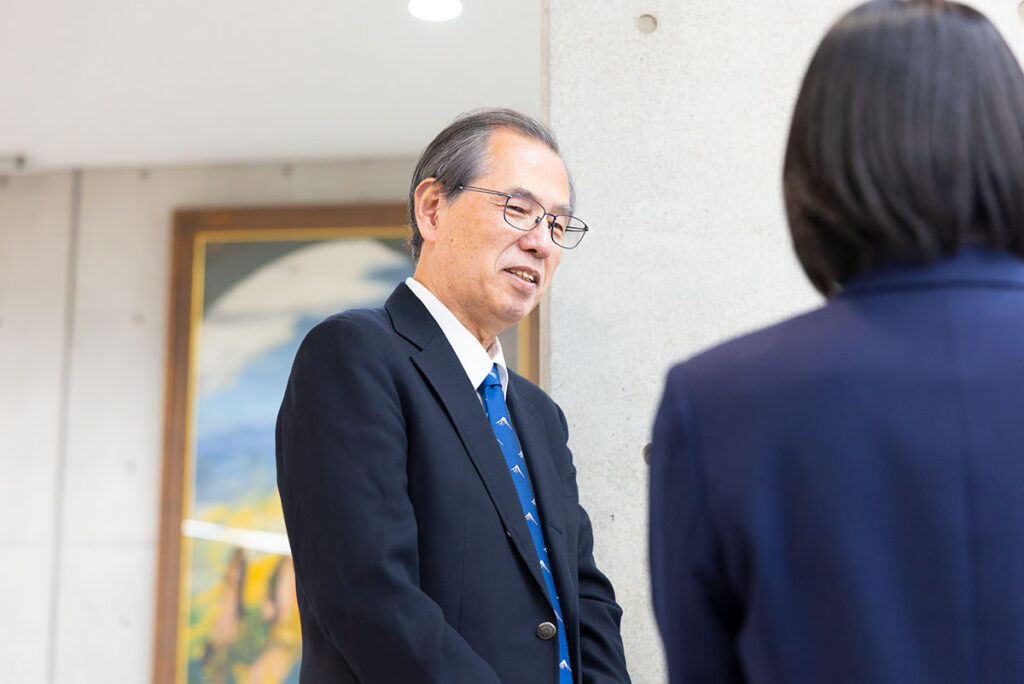「主体的に自分を育成できる人間力」を涵養(カンヨウ)します
明星学苑は、今を遡る103年前、1923年にこの府中の地に創立されました。この明星学苑を創立から、現在の幼稚園から大学・大学院までの一貫の学園に築き上げたのが、若き日に成蹊学園の創設者 中村春二先生の下で教鞭をとり、その碩学を継承された児玉九十先生です。この児玉九十先生の提唱した建学の精神の1つに「実践躬行(ジッセンキュウコウ)」があります。その趣意は「自分で考えて行動すること」です。
現代社会は価値観の多様化や、生成AIに代表される技術革新、さらには民主主義の概念や方向も含めて地球社会全体の変質が進んでいます。こうした変化が著しく、未来の予想が難しい状態を表す言葉に「VUCA」があります(Volatility:変動性/Uncertainty:不確実性/Complexity:複雑性/Ambiguity:曖昧性、の頭文字)。例えばコロナ禍に起因する労働環境の劇的な変化、ウクライナ侵攻に起因する食糧供給問題、温暖化による異常気象などもその範疇です。いずれの問題も、未来がどう展開し、そこで生きる力とはどのようなものかを考えさせられます。畢竟そこには、個々人が「主体的に社会の変化に順応する能力」が要求されています。そして中高生の皆さんには、この急激な社会の変容を主体的に意識することが喫緊(キッキン)の課題となります。
OECDが2023年に発表した『Learning Compass 2030』では、明るい未来社会の実現のためのキーワードとして、「Agency」と「非認知能力」という2つの言葉が挙げられています。「Agency」とは自ら考え、主体的に行動して、責任を持って社会変革を実現する力。曰く「実践躬行」。非認知能力とは自制心や誠実性、好奇心や協調性など、情緒や社会性に関する数値で表しにくい能力。曰く「心の力」。

教育における知識とは「人が生きる力」を育てることであり、その力が価値を創造し、人間社会の持続性を生みだします。そして、新たな時代を生きる青少年が、社会の変化を肯定的にとらえ、多様性と個の主体性を尊重できる力を認識することで、明るく元気な未来社会が実現できます。
明星Institutionでは、この目的に向かって6年間、全力で未来を肯定的にとらえ、人類社会の中枢で活躍できる人材の輩出に向けて取り組んでまいります。
明星Institution中等教育部 校長
井上一紀
